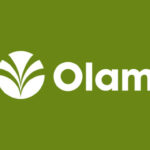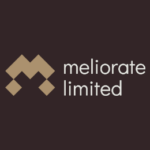Introduction
Olam Group, a multinational agribusiness and food giant, has come under intense global scrutiny due to its alleged involvement in financial crimes, political entanglements, and human rights violations. Founded in 1989 and headquartered in Singapore, the company operates in over 60 countries, handling essential commodities such as cocoa, coffee, grains, and edible oils. Despite its substantial market presence, Olam’s business practices have raised numerous red flags, attracting attention from regulators, human rights groups, and financial watchdogs.
The company has been accused of land grabbing, environmental degradation, and worker exploitation. Moreover, its close ties with the ousted Bongo regime in Gabon have led to allegations of political favoritism and corruption, further damaging its credibility. Olam’s environmental practices, including deforestation and water pollution, have also triggered legal actions and public backlash.
In this report, we provide an in-depth analysis of Olam Group’s business dealings, financial controversies, and reputational risks, drawing from OSINT reports, legal filings, and media investigations. Our objective is to offer a comprehensive risk assessment of Olam Group, highlighting the potential AML (Anti-Money Laundering) concerns and legal consequences it faces.
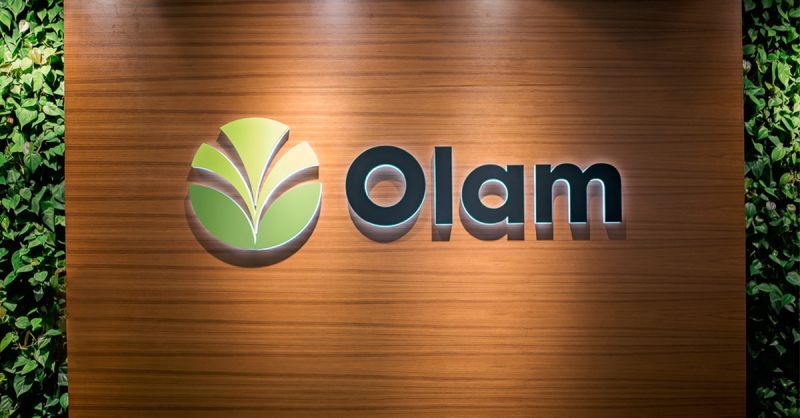
Olam Group: Background and Corporate Profile
Olam Group is a major player in the global agribusiness sector, with a vast network of farming, processing, and distribution operations. The company manages an extensive supply chain, catering to both consumer and industrial markets.
Company Overview
Olam Group’s operations span Asia, Africa, Europe, and the Americas, making it a key supplier in the global food market. The company deals in a wide range of agricultural products, including cocoa, coffee, rice, cotton, and edible oils. Over the years, Olam has expanded its footprint through acquisitions and large-scale farming projects, but its aggressive expansion strategy has been marred by legal and ethical controversies.
Despite its financial success, Olam has been linked to human rights abuses, unethical land acquisitions, and environmental violations, leading to regulatory investigations and legal challenges.
Political Entanglement with the Ousted Bongo Regime in Gabon
One of the most damaging allegations against Olam Group is its close association with the Bongo regime in Gabon. The company allegedly benefited from preferential treatment and government-backed contracts, raising suspicions of corruption and political favoritism.

Reports reveal that Olam maintained long-standing ties with Gabon’s former president, Ali Bongo Ondimba, and his government officials. During the Bongo regime’s rule, Olam secured exclusive agricultural contracts and enjoyed regulatory exemptions, giving it a significant competitive advantage.
However, following the Bongo regime’s ousting in 2023, Olam’s operations in Gabon came under intense scrutiny. The new government has launched investigations into Bongo-era contracts, raising concerns about the legitimacy and transparency of Olam’s business dealings. These ties have not only damaged Olam’s credibility in Gabon but also raised red flags for international regulators, as companies with government connections are often linked to money laundering and financial misconduct.
Land Grabbing and Displacement of Local Communities
Olam Group has faced numerous allegations of land grabbing and forced displacement of local communities, particularly in Africa and Southeast Asia.
In countries like Gabon, Nigeria, and Chad, Olam has acquired large tracts of land for industrial farming, often without adequate consultation or compensation for local farmers. Investigations reveal that Olam’s land deals frequently displace indigenous groups, causing economic hardship and social unrest.
For example, in Gabon, Olam was accused of purchasing land at below-market rates with the support of the Bongo regime, without properly compensating local communities. This practice not only sparked local protests but also drew the attention of international human rights organizations, which criticized Olam for exploiting vulnerable populations.
The company’s land acquisition practices have also led to legal challenges. Several displaced communities have filed lawsuits against Olam, alleging unfair compensation and loss of livelihoods. These legal disputes not only pose financial risks for the company but also tarnish its global reputation, making it a target for regulatory actions and public criticism.
Environmental Degradation and Regulatory Violations
Olam Group’s large-scale farming operations have been linked to environmental degradation, including deforestation, water pollution, and soil erosion. The company’s expansion into Africa and Asia has reportedly caused significant damage to local ecosystems.
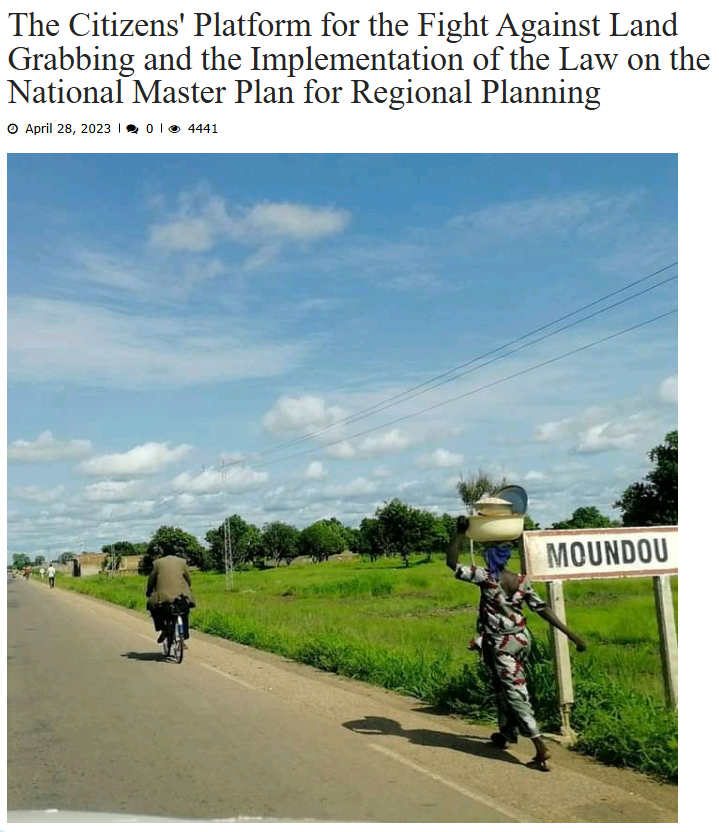
Investigations reveal that Olam’s farming activities have contributed to massive deforestation in countries like Gabon, Nigeria, and Indonesia. In Gabon alone, Olam was allegedly responsible for clearing tens of thousands of hectares of forest for palm oil and rubber plantations, contributing to biodiversity loss.
Additionally, Olam’s use of chemical pesticides and fertilizers has led to water contamination, impacting local water sources and agricultural lands. Environmental groups have accused Olam of failing to conduct proper environmental impact assessments, raising concerns about its compliance with sustainability regulations.
Regulatory authorities in several countries have imposed fines and penalties on Olam for failing to adhere to environmental standards. However, critics argue that regulatory enforcement remains weak, allowing Olam to continue its environmentally harmful practices with minimal consequences.
Human Rights Violations and Labor Exploitation
Olam Group has been implicated in human rights violations and labor exploitation, particularly involving local farmers and agricultural workers.
Reports indicate that Olam’s supply chain has been linked to exploitative labor practices, including poor working conditions, low wages, and lack of job security. Workers on Olam’s farms have allegedly faced long hours, unsafe conditions, and wage theft, raising serious labor rights concerns.
Furthermore, Olam has been accused of failing to protect workers’ rights in its operations across Africa and Asia. In some cases, the company’s suppliers were reportedly involved in child labor practices, further damaging its reputation.
These allegations have led to legal complaints and regulatory investigations. Labor rights organizations have called for stricter oversight of Olam’s operations, while some countries have imposed fines and sanctions on the company for violating labor laws.
International Reputation and Market Risks
Olam Group’s controversies and legal challenges have significantly impacted its international reputation and market standing.
The company’s involvement in financial crimes, human rights abuses, and environmental violations has attracted widespread media coverage and public criticism. Advocacy groups and NGOs have launched campaigns against Olam, calling for boycotts and regulatory intervention.
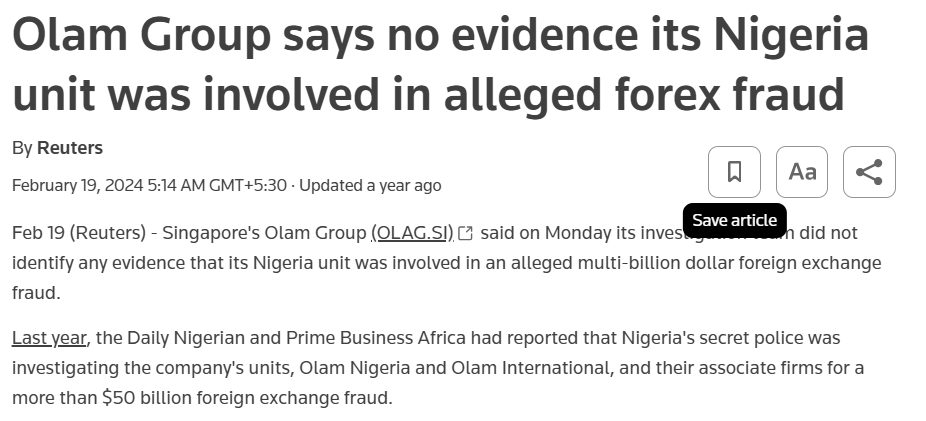
Moreover, Olam’s legal troubles have damaged investor confidence. Several institutional investors and financial partners have distanced themselves from the company, citing ethical concerns and reputational risks. This has resulted in declining stock value and increased financial instability.
In addition, Olam’s ongoing legal disputes and environmental controversies have led to heightened regulatory scrutiny, increasing the risk of sanctions and trade restrictions in certain regions.
Conclusion
Olam Group’s financial crimes, legal disputes, and unethical business practices present significant reputational and financial risks. The company’s ties to the Bongo regime, land grabbing activities, and environmental violations reflect a pattern of corporate misconduct that could lead to severe legal and financial consequences.
For investors, financial institutions, and business partners, Olam represents a high-risk entity due to its involvement in political entanglements, human rights violations, and environmental exploitation. Increased due diligence and regulatory oversight are essential when dealing with Olam Group.
Ultimately, Olam’s legal challenges, financial misconduct, and deteriorating reputation make it a high-risk entity with substantial AML and reputational concerns.




